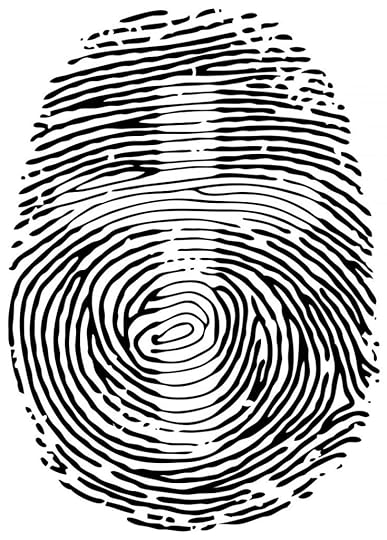Should Those Who Love Me, Use My Nickname?
Over the years, people have asked me what “Tez” means. My response can be anywhere from “It’s a nickname” to a more in-depth redemptive explanation if I’m feeling especially transparent and the person feels safe to me. But now I’m putting it out there for everyone–regardless the response.
I was born Terry Dean Brooks—not Terrence, just Terry. After four male children, Mom and Dad wanted a girl so badly that they decided to call the next child Terry, regardless of gender. I’m fairly certain one should never tell this to their young boy, but Mom didn’t mean any harm. Had she known how it would affect me, she would never have said it. Nevertheless, it was the beginning of some powerful issues I had to deal with.
Unathletic and bit husky, I was drawn to creativity and the arts and was a bit of a momma’s boy. During my elementary years, I was often bullied and called cruel terms like “Terry the fairy.” I wasn’t sure what it meant, but I knew it was feminine, and since I was a boy, it had to be bad.

I often found refuge on the weekends when I attended church with my guy friends who accepted me and made me feel safe. Eventually, even church was not safe. A man there noticed my sensitive demeanor and took advantage of my need for male attention. This pedophile started grooming me at age seven (as well as several of my church friends) with kindness, gentle touches, gifts, and finally, boundary testing. He eventually molested me as a young teen. None of us kids told each other—we were too ashamed. I blamed myself and buried the memory deep into my subconscious until all I recalled was a vague memory of something terrible I must have caused.
Puberty found me confused and wondering why my normal admiration of men had suddenly turned sexual. It’s important to understand the close connection between the physical and psychological that occur during adolescence. A lot of wires get crossed in a young boy’s brain when he’s been molested. When hormones flood his brain and body at the same the results are life-altering. I struggled for decades, wondering why I was attracted to both women and men—silently walking out my salvation feeling guilty and as if God regretted I was his child.
Thankfully, God kept a short leash on me and I never strayed far from his side. Life moved forward, I married and became a father. Those unnatural feelings slowly faded so I chalked it up to “youthful experimentation.” But when my marriage failed after ten years, a different kind of shame enveloped me; the shame of losing my wife to another man. Was I not masculine enough–not desirable? My self-esteem received a hit that took years to overcome.
I eventually remarried and had more children. As missionaries, my family and I were assigned to Australia for a few years. That was where God did something miraculous for my personal healing. Something lasting.
A few months into our assignment, I re-connected online with one of my childhood friends from church. He opened up about his abuse by the same man. I was both numb and enraged.
The conversation turned dark as we shared details and how it affected our lives growing up. As I hung up, a light turned on in my head. I suddenly realized it wasn’t my fault. Although my wife already knew my past, I shared this new discovery with her–that I hadn’t somehow tempted this guy to do it—he forced me.
As we talked, my wife said self-blame was typical for survivors who can’t deal with the loss of control over the situation. After reasoning together for a while, we prayed, my head buried in her shoulder, weeping, healing.
We decided I should get some Christian counseling so I could work through these memories and gain a healthier understanding of how it affected my relationship with men, women, my parents, my brothers, and God. The months of counsel and homework in Australia were hard but good for my healing and maturity. I understood how Christ’s work on the cross had removed the disgrace I’d carried for decades. He took my shame upon himself, exchanging it by imputing his own honor and dignity into me.

During one of my prayer times with the Lord, I distinctly recall a sense that God was giving me a new identity, and with that, a new name. Of course, I assumed that meant some biblical name that meant something profound—like Abram (Abraham) or Saul (Paul). And I assumed it would be private, between me and God.
Nope.
But I’m getting ahead of myself. You see, Australians love to assign nicknames. One playful method is to take a name ending in “ry” and change it to “ez.” Mary becomes Mez and Jerry is changed to Jez.
They called me Tez.
It made me smile. It wasn’t the nickname itself. Though the name didn’t have all the baggage of my birth name. There was more—something restorative about how my male friends pronounced this new label.
When I entered a room, their deep, masculine bravados would call it out as if tagging me as part of their manly-man club. As if announcing to the world that their long-lost favorite television personality had walked on stage.
“Tez!” they would shout. Sometimes in unison, sometimes consecutively, as I passed by each of their offices. I felt loved. I felt treasured. I felt renewed.
Meanwhile, more of my writing was being published. Magazine editors asked if I would use a pen name since Terry Brooks was a famous fantasy fiction author. It wasn’t prudent for me to use the same name, so I agreed to the pseudonym “Tez Brooks.”
Before long, even my wife started calling me Tez, and it stuck. I felt too old for a name change, but by the time we returned to the United States, it was who I was. Only then did it occur to me God had indeed given me a gift in this new title. He’d transformed my heart, healing me from deep wounds. I arrived home, a new man.
Please understand, this story is not about me pointing fingers by calling myself a victim to avoid confronting my own fallen condition. And I’m in no way saying that my redemption came from simply a new name or even counseling. This is about Christ’s power to deliver all of us if we believe and receive him–be it a child molester or a young man dealing with same-sex attraction.
Whether we are rejecting God and living for ourselves or passionately following Christ, we all desperately need a Savior, every day of our lives. Jesus came to trade our rebellion for forgiveness, our shame for honor, our suffering for healing–so that you and I can have life more abundantly (John 10:10).
Let me clarify something with a verse, “I don’t mean to say I am perfect, I haven’t learned all I should even yet, but I keep working toward that day when I will finally be all that Christ saved me for and wants me to be” (Philippians 3:12, TLB).
Very few people now know my given name. Except for my medical records, most everything (my mail, my bank, even my signature) changed to Tez. The old name, carrying memories of hurt and shame, has passed away.
Some of my relatives or long-time friends can’t find it in themselves to call me Tez. That’s ok; old habits are hard to break, so I give them grace. Although they know about my past, perhaps they don’t understand the liberating nature of this name change. I’m grateful to those who do refer to me as Tez after calling me Terry for decades. Because each time they say Tez, it reminds me of God’s grace. It builds me up, making those people who’ve adopted this new label part of my redemption.
I understand how Simon might have felt when Jesus said, “I’m going to tell you who you really are. You are Peter, a rock.” (Matthew 16:18, MSG). More than a simple nickname—it’s my new identity in Christ.
 Related Posts:How Are You Protecting Your Teen Daughter from…The Man Who Led Me to Christ Died This MorningAdvice from a Single DadIs It Ok For Christians To Cuss?How Should the Church Help Members with LGBTQ Issues?
Related Posts:How Are You Protecting Your Teen Daughter from…The Man Who Led Me to Christ Died This MorningAdvice from a Single DadIs It Ok For Christians To Cuss?How Should the Church Help Members with LGBTQ Issues?



